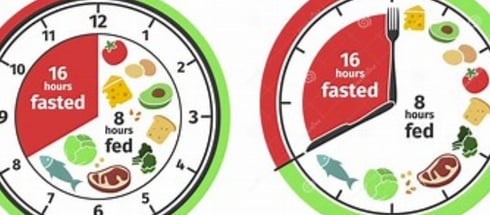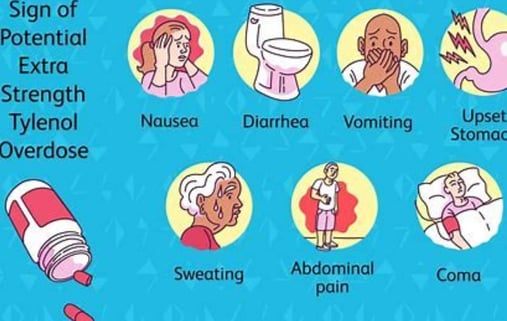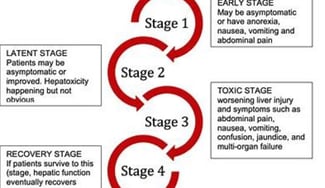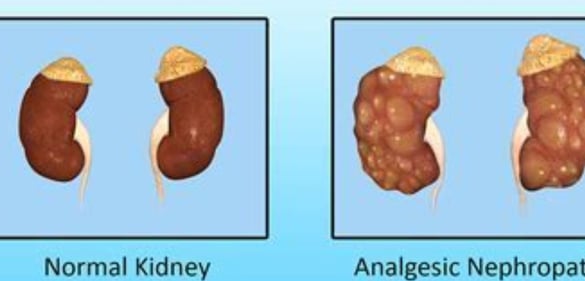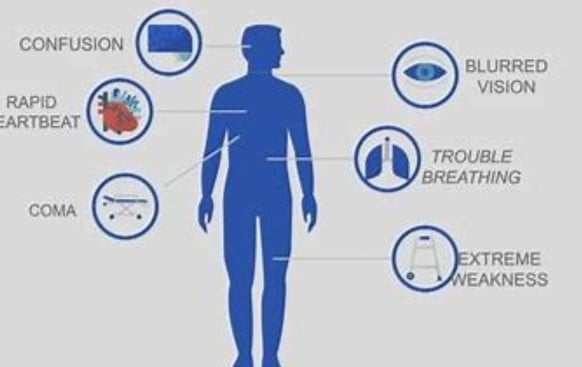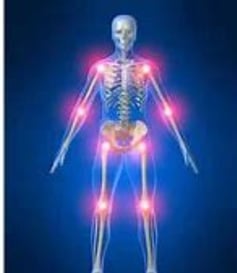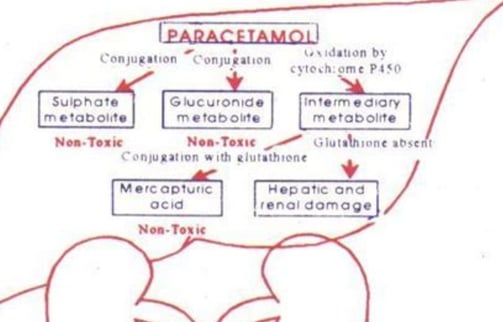
N-acetylcysteine (NAC) and Fasting : does nac break a fast
Discover how N-acetylcysteine and fasting can enhance immune function, reduce oxidative damage, and benefit chronic and acute diseases. Boost your glutathione levels today!
PHARMACY
Dr Hassan Al Warraqi


N-acetylcysteine (NAC) and Fasting
for Various Diseases
N-acetylcysteine (NAC) is a medication and dietary supplement that has shown promise in treating a variety of conditions. Alongside NAC,
fasting has also gained attention for its potential health benefits. In this article, we will explore the potential benefits of NAC and fasting for different diseases and conditions.does nac break a fast
1. Acetaminophen Overdose
One of the well-known uses of NAC is as an antidote for acetaminophen overdose. Acetaminophen, commonly found in over-the-counter pain relievers, can cause liver damage when taken in excessive amounts.
NAC helps prevent liver damage by replenishing glutathione, a vital antioxidant that protects the liver from toxic substances. By restoring glutathione levels, NAC can mitigate the harmful effects of acetaminophen overdose.
2. Respiratory Conditions
NAC has shown potential in aiding respiratory conditions such as chronic obstructive pulmonary disease (COPD) and bronchitis.
It works by thinning mucus, making it easier to cough up and clear the airways. This can provide relief to individuals with excessive mucus production and improve their breathing. However,
it is important to consult a healthcare professional before using NAC for respiratory conditions.
3. Contrast-Induced Nephropathy (CIN)
Contrast-induced nephropathy (CIN) is a condition where the kidneys suffer damage due to the use of contrast dye during medical imaging procedures.
Research suggests that NAC may help protect the kidneys from this damage.
It is believed that NAC's antioxidant properties and ability to increase blood flow to the kidneys contribute to its potential benefits in preventing CIN. However, more studies are needed to establish the effectiveness of NAC in this regard.
4. Infertility
Another area where NAC shows promise is in improving sperm quality and motility. Oxidative stress is known to negatively impact sperm health, and NAC's antioxidant properties may help combat this.
By reducing oxidative stress, NAC may improve sperm function and increase the chances of conception. However, it is essential to consult with a healthcare professional before using NAC for infertility concerns.
5. Fasting and Disease
In addition to NAC, fasting has gained attention for its potential health benefits. Fasting refers to voluntarily abstaining from food or drink for a specific period. It has been practiced for centuries and is known to have various effects on the body.
One of the benefits of fasting is its potential to improve metabolic health. Studies have shown that intermittent fasting, where individuals alternate between periods of eating and fasting, can help regulate blood sugar levels and improve insulin sensitivity. This can be beneficial for individuals with conditions such as type 2 diabetes.
Fasting has also been linked to autophagy, a process where the body breaks down and recycles damaged cells and proteins. Autophagy helps maintain cellular health and has been associated with a reduced risk of age-related diseases such as neurodegenerative disorders and certain types of cancer.
Furthermore, fasting has been shown to have anti-inflammatory effects.
Chronic inflammation is a contributing factor to many diseases, including cardiovascular disease, autoimmune disorders, and obesity.
By reducing inflammation, fasting may help mitigate the risk and severity of these conditions.
Conclusion
N-acetylcysteine (NAC) and fasting both show potential benefits for various diseases and conditions.does nac break a fast
NAC has been used as an antidote for acetaminophen overdose, and it may also aid respiratory conditions,
protect against contrast-induced nephropathy, and improve sperm quality in infertility cases.
Fasting, on the other hand, has shown promise in improving metabolic health, promoting cellular repair through autophagy, and reducing inflammation.
While both NAC and fasting offer potential benefits, it is crucial to consult with a healthcare professional before incorporating them into your routine.
They should be used under proper guidance and supervision to ensure safety and effectiveness.
a variety of potential uses.for chronic and acute diseases.
its long-term safety and efficacy. questionable .
info about NAC:
Chemical name: N-Acetyl-L-cysteine
Formula: C5H9NO3S
Molecular weight: 163.16 g/mol
Melting point: 114-116 °C
Solubility: Soluble in water
Bioavailability: Well absorbed from the gut
Metabolism: Metabolized to glutathione in the liver
Half-life: Approximately 2 hours
NAC is a naturally occurring substance that is found in foods such as
broccoli, cabbage, and spinach, chicken, turkey, yogurt, cheese, eggs, sunflower seeds, and legumes.
It is also produced by the body.
NAC is a precursor to glutathione, which is a powerful antioxidant that helps to protect cells from damage.
regulating glutamate levels in your brain, NAC may alleviate symptoms of mental health conditions
NAC has the potential to treat conditions such as Alzheimer’s disease and Parkinson’s disease.
It may also aid fertility in women with PCOS
NAC can reduce oxidative damage to your heart, decrease your risk of heart disease
NAC’s ability to boost glutathione levels may improve immune function
keywords
N-acetylcysteine (NAC) ,fasting ,diseases ,antioxidant ,chronic ,acute , boost glutathione levels , improve immune function,fertility in women with PCOS,reduce oxidative damage to your heart,
N-Acetylcysteine (NAC) and Fasting
An In-Depth Analysis of Provided Sources
This article offers a detailed and comprehensive analysis of key insights and facts from various sources regarding N-Acetylcysteine (NAC), its potential interactions with fasting, and its wide-ranging health benefits, as well as its effects on specific medical conditions.
Crafted for SEO optimization, this content incorporates keywords like "NAC and fasting" and "NAC health benefits" to enhance visibility on search engines.
First: What Is NAC and Its Primary Mechanism of Action?
N-Acetylcysteine (NAC) is a compound derived from the amino acid cysteine, commonly used as a dietary supplement to support overall health.
Its benefits are primarily attributed to its role as an antioxidant and its ability to boost glutathione production, a critical antioxidant in the body.
Antioxidant Enhancement: NAC is "essential for the synthesis and replenishment of glutathione," known as "the body’s most powerful antioxidant." It contains cysteine, which "stimulates glutathione production, acting as a potent cellular antioxidant."
Novel Mechanism: A study (Ezeriņa et al.) revealed a new antioxidant mechanism for NAC, noting it "acts as a fast-acting antioxidant by triggering intracellular hydrogen sulfide (H2S) and sulfane sulfur production." Researchers found that cysteine from NAC converts to H2S, which is oxidized into sulfane sulfur species within mitochondria. They suggest that "sulfane sulfur species, produced by enzymes like 3-mercaptopyruvate sulfurtransferase (MST) and sulfide:quinone oxidoreductase (SQR), are the actual mediators of NAC’s immediate antioxidant and cytoprotective effects."
SEO Keywords: NAC, antioxidants, glutathione, NAC mechanism of action.
Second: Diverse Health Benefits of NAC
The sources highlight NAC’s extensive health benefits beyond its antioxidant role:
Respiratory Health: NAC supports respiratory function by "reducing oxidative stress and inflammation," particularly during fasting.
It’s used to treat symptoms of chronic obstructive pulmonary disease (COPD), reduce exacerbations, and improve lung function.
It also benefits chronic bronchitis patients by "thinning mucus in bronchial tubes and boosting glutathione levels," reducing wheezing, coughing, and respiratory attacks.
Mental Health and Addiction: NAC regulates glutamate levels, a key neurotransmitter, potentially improving symptoms of bipolar disorder, schizophrenia, obsessive-compulsive disorder (OCD), and substance use disorders.
Brain and Neurological Health: NAC shows promise for Alzheimer’s and Parkinson’s by replenishing glutathione and regulating glutamate.
Studies suggest it "enhances dopamine function and reduces symptoms like tremors" in Parkinson’s.
Fertility: NAC "improves male fertility" by countering oxidative stress affecting sperm health and supports women with polycystic ovary syndrome (PCOS).
Insulin Resistance and Blood Sugar: Research indicates NAC "improves insulin resistance and lowers blood sugar," beneficial during fasting or for those with blood sugar regulation issues. Animal studies show it "stabilizes blood sugar by reducing inflammation in fat cells."
Heart Health: NAC "reduces heart disease risk by limiting oxidative damage to cardiac tissues" and protects heart function in diabetic patients or post-cardiac surgery recovery.
Liver Function: Used as an antidote for acetaminophen poisoning, NAC "reduces cellular damage in fatty liver disease" by enhancing glutathione levels.
SEO Keywords: NAC benefits, respiratory health, mental health, NAC fertility, NAC heart health.
Third: NAC Interactions with Fasting
The sources emphasize NAC’s relationship with fasting and its impact on metabolic processes:
Metabolic Effects During Fasting: NAC "reduces oxidative stress and inflammation" that may increase during fasting due to elevated free radicals, supporting the body under these conditions.
Blood Sugar Levels: As noted, NAC may improve insulin resistance and lower blood sugar, potentially interfering with fasting goals related to glucose regulation.
Autophagy: One source suggests NAC "may reduce autophagy by removing reactive oxygen species (ROS)," though human data is scarce. However, "its liver support and detoxification benefits may outweigh theoretical risks in some cases."
Liver Support and Detoxification: NAC boosts glutathione production, aiding "detoxification processes during fasting, especially in the liver," which is crucial for prolonged fasting when toxins may be released from fat cells.
Insulin Sensitivity: While fasting enhances insulin sensitivity, "some studies show NAC affects glucose metabolism, though evidence remains inconclusive."
SEO Keywords: NAC and fasting, NAC and autophagy, liver support during fasting.
Fourth: Practical Considerations for Taking NAC During Fasting
The sources provide practical guidance on using NAC alongside fasting:
Optimal Timing: "For intermittent fasting, take NAC during eating windows to avoid interfering with fasting metabolism or autophagy." It’s suggested to "consume NAC during feeding periods rather than fasting windows."
Does NAC Break a Fast?: Technically, NAC contains "minimal calories (~1-2 kcal per dose)," unlikely to disrupt fasting benefits if taken as a pill. However, "strict fasters may avoid anything but water."
Usage Tips: "Avoid NAC on an empty stomach if it causes discomfort, as it may lead to digestive issues for some. It’s best taken with food or after a small meal."
Dosage: "Recommended daily dosage ranges from 600 to 1800 mg as a dietary supplement."
SEO Keywords: Taking NAC during fasting, does NAC break a fast, NAC dosage.
Fifth: General Recommendations and Tips
The sources stress the importance of medical consultation before combining NAC with fasting:
"Always consult a doctor or specialist before adding NAC to your routine, especially with fasting or specific health conditions."
"Consult a healthcare provider before pairing NAC with prolonged fasting, particularly if you have medical conditions."
"Personalization is key: Consider fasting duration, health status, and goals."
"NAC may interact with medications or supplements, so timing depends on your overall protocol."
SEO Keywords: NAC usage tips, medical consultation for fasting.
Sixth: Side Effects and Contraindications
The sources warn of potential side effects and contraindications:
Side Effects: NAC may cause "nausea, vomiting, digestive upset, and oral irritation if inhaled."
Contraindications: "Individuals with bleeding disorders or on blood thinners should avoid NAC, as it may slow clotting."
Odor: "NAC has an unpleasant smell, making consumption challenging."
SEO Keywords: NAC side effects, NAC contraindications.
Conclusion
N-Acetylcysteine (NAC) is a promising dietary supplement with diverse health benefits, particularly as an antioxidant and glutathione enhancer.
During fasting, NAC may reduce oxidative stress and support liver detoxification, though it could interfere with autophagy or blood sugar regulation.
It’s recommended to take NAC during feeding windows and consult a healthcare provider to ensure safe, optimal use, considering individual health and goals.
More robust human studies are needed to fully understand NAC’s interactions with fasting and determine the best dosages and timing for maximizing benefits while minimizing risks.
SEO Keywords: NAC and fasting, NAC benefits, NAC analysis, fasting and antioxidants.
FAQs About NAC and Fasting
does nac break a fast
Below is a detailed, SEO-optimized FAQ section exploring N-Acetylcysteine (NAC) and its relationship with fasting.
This content dives deep into key questions, leveraging keywords like "NAC and fasting," "NAC benefits," and "autophagy and fasting" to boost search engine visibility while providing valuable insights.
1. What Is NAC, and What Are Its Primary Functions in the Body?
N-Acetylcysteine (NAC) is a dietary supplement derived from the amino acid cysteine.
Its primary role is to enhance the production of glutathione, a potent antioxidant that protects cells from damage caused by free radicals and oxidative stress.
Beyond this, NAC supports liver health, improves respiratory function by breaking down mucus, and may regulate glutamate levels in the brain, a crucial neurotransmitter for mental health.
SEO Keywords: What is NAC, NAC functions, glutathione production, antioxidant benefits.
2. How Is NAC Believed to Affect the Body During Fasting?does nac break a fast
During fasting, oxidative stress and inflammation may increase. NAC is thought to mitigate these effects due to its antioxidant properties.
Research suggests it may also improve insulin sensitivity and lower blood sugar levels, potentially benefiting those fasting or managing blood sugar issues.
However, its full metabolic impact during fasting remains under investigation, making it a topic of growing interest in health research.
SEO Keywords: NAC during fasting, oxidative stress fasting, NAC blood sugar, fasting benefits.
3. Does Taking NAC Break a Fast? When Is the Best Time to Take It During Intermittent Fasting?
NAC is low in calories (approximately 1-2 kcal per dose), so taking it as a pill is unlikely to break a fast for most people, especially in intermittent fasting.
Strict fasters, however, may avoid all supplements except water. For intermittent fasting, the best time to take NAC is during eating windows to minimize potential interference with fasting metabolism or processes like autophagy.
SEO Keywords: Does NAC break a fast, NAC intermittent fasting, best time to take NAC, fasting rules.
4. How Does NAC Work as an Antioxidant? Is It Solely Linked to Glutathione Production?
While NAC is primarily known as a precursor to cysteine for glutathione production, recent studies reveal additional antioxidant mechanisms.
NAC boosts hydrogen sulfide (H2S) and sulfane sulfur species production within cells, particularly in mitochondria.
These compounds are believed to be the direct mediators of NAC’s immediate antioxidant and cytoprotective effects, expanding its role beyond just glutathione synthesis.
SEO Keywords: NAC antioxidant mechanism, glutathione and NAC, H2S production, cellular protection.
5. Can NAC Help with Specific Health Conditions? What Are the Most Notable Ones?
does nac break a fast
Research highlights NAC’s potential benefits for various conditions:
Liver Health: A primary antidote for acetaminophen poisoning, preventing liver damage.
Respiratory Conditions: Improves symptoms of COPD and chronic bronchitis by thinning mucus and reducing inflammation.
Mental Health: May enhance outcomes in bipolar disorder, schizophrenia, OCD, and substance use disorders.
Fertility: Boosts male fertility and supports women with PCOS.
Heart Health: Reduces oxidative stress, lowering heart disease risk.
These applications make NAC a versatile supplement in health management.
SEO Keywords: NAC health conditions, NAC liver support, NAC respiratory benefits, NAC mental health.
6. Are There Precautions or Side Effects to Consider When Taking NAC?does nac break a fast
Though generally safe as a prescription drug, NAC may cause side effects like nausea, vomiting, and digestive discomfort.
Individuals with bleeding disorders or on blood thinners should exercise caution, as NAC may slow blood clotting.
Its unpleasant odor can also make it difficult to consume.
Consulting a doctor before starting NAC is essential, especially with existing health conditions or medications.
SEO Keywords: NAC side effects, NAC precautions, NAC safety, NAC and blood thinners.
7. How Can You Naturally Obtain Cysteine and Glutathione from Your Diet? Is NAC Supplementation Preferable?
Cysteine is found in protein-rich foods like chicken, turkey, yogurt, cheese, eggs, sunflower seeds, and legumes.
To synthesize cysteine, the body needs adequate folate, vitamin B6, and vitamin B12, available in beans, lentils, spinach, bananas, salmon, and tuna.
While the body produces glutathione and small amounts are present in some foods, oral glutathione absorption is limited.
NAC supplements are used to efficiently increase cysteine levels and support glutathione production, with the decision to use them depending on individual health needs and a doctor’s advice.
SEO Keywords: Natural cysteine sources, glutathione in diet, NAC vs food, NAC supplementation.does nac break a fast
8. What Are the Key Considerations When Using NAC During Fasting for Specific Health Goals Like Enhancing Autophagy or Supporting Liver Function?
When using NAC with fasting, align its use with your goals:
Autophagy: If boosting autophagy is the priority, avoid NAC during fasting periods, as it may reduce the oxidative stress needed to trigger this process. Take it during feeding windows instead.
Liver Support: For liver detoxification, especially during prolonged fasting, NAC’s benefits in enhancing glutathione and toxin removal may outweigh theoretical autophagy concerns.
Usage should be personalized based on fasting duration, health status, and goals.
Consult a healthcare professional before combining NAC with extended fasting, particularly with medical conditions.
SEO Keywords: NAC fasting considerations, NAC and autophagy, NAC liver support, fasting goals.
Conclusion
This SEO-optimized FAQ dives deep into NAC and fasting, addressing its roles, benefits, and practical considerations.
NAC’s antioxidant power, potential to support liver and respiratory health, and interactions with fasting make it a compelling supplement. Whether enhancing autophagy or detoxifying during a fast, timing and medical guidance are key to maximizing benefits safely.
SEO Keywords: NAC fasting FAQs, NAC benefits fasting, autophagy fasting, NAC health guide,does nac break a fast,
